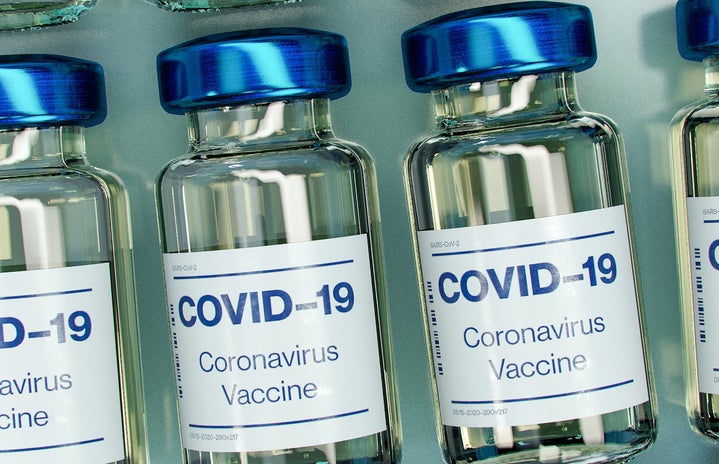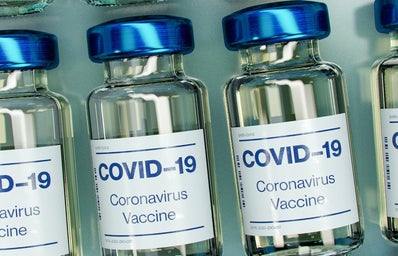After more than a year with this pandemic situation, some vaccines against covid-19 have been developed in record time, nowadays in Brazil, three of them are approved by ANVISA ( National Agency of Health Surveillance ) for definitive use and one is still in emergency use only. Among those for permanent use we have the AstraZeneca one, developed by the University of Oxford and produced here in Brazil by Fiocruz.
According to released data, the vaccine produced in partnership with the pharmaceutical company AstraZeneca is 79% effective in preventing symptomatic cases of the disease, which means that you can still get Covid- 19, but it will not develop into a serious case and in most of the times it will manifest itself as a flu.
The immunizer also shows to be 100% effective in severe cases, a fact that is excellent, because it prevents hospitals and ICUs from becoming overloaded.
It is important to remember that this vaccine is applied in two doses, but in the first application, the person is already 67% protected, according to Oxford University. After the first dose, it is necessary to wait about 22 days for the body to start showing some immune response.
- But is AstraZeneca really reliable? Is there any risk in taking it?
-
To answer these and more questions, we at Her Campus, talked to Isabela Martins Gonzaga, biomedical that does her postdoctoral at the Princess Margaret Cancer Center of Toronto, in Canada, furthermore, she is member of the Pro-Vaccine Union and the All for Vaccines movement and the creator of the Pretty Much Science, a scientific dissemination project on Instagram.
Isabela confirms that the vaccine developed in Oxford is reliable and was approved in August 2020, in phases 1 and 2 of the test, with no serious side effects.
In fact, it was produced in record time, but it is not something to worry about, because the virus that causes COVID-19, SARS-Cov-2, is a member of a well-known family of coronaviruses that has been studied for approximately 20 years, which speeds up a lot the research, since understanding the biology of the virus is one of the most time-consuming processes.
“The SARS (in 2003) and MERS (in 2013) epidemics were caused by coronaviruses of the same family as the cause of COVID-19. This makes scientists already know deeply about the formation and behavior of the virus ”, adds the biomedicine.
Not to mention the fact that the whole world is investing resources, never before seen in the history of modern medicine, in research, development and testing of vaccines.
Isabela also notes that the partnership and coordination of studies between several researchers, universities, research institutes and the pharmaceutical industry was one of the key components for which the vaccine could be tested in different centers, spread throughout the world.
“Today there are more than 34 million people in Europe who have already been vaccinated with the Astrazeneca vaccine and with that large number, it is possible to say that the vaccine has a very high safety rate and the most observed side effects vary from very mild to moderate. ”, says the biomedical.
Like most of the medications and immunizers, it is common to notice some side effects. So far, we have records of pain, redness, itching and / or swelling at the vaccine application site, fatigue, nausea, headache, fever and muscle pain.
It is worth to remember that if the person is pregnant, has a history of severe allergic reaction to other vaccines, and a serious infectious condition or uses drugs such as anticoagulants or with immunosuppressive properties, it is important to consult the responsible physician for better guidance.
The doctor further points out that “The most severe side effects are extremely rare, which makes the benefits of the vaccine far outweigh its risks… The person who does not get the vaccine is more likely to become ill and have complications (or even die) by COVID-19, than a vaccinated person that develops any serious side effects associated with the vaccine. ”
- Emergency use X Permanent use
-
On March 12, the use of AstraZeneca in a permanent way was authorized here in Brazil, however it was available for emergency use during about 24 days, this is because a vaccine being used for emergency form means that ANVISA has access and approves all existing clinical data. Therefore, it is offered to the groups of risk.
In order, to be approved for definitive registration, ANVISA requires a complete analysis by the agency of all data that have already been completed from clinical studies. It is in this situation that all brazilians have access to the vaccine.
- Coronavac x AstraZeneca, what’s the difference?
-
The main difference is found in the form of production, but all vaccines have high levels of effectiveness, with more than 95%.
To say that one is better than the other is an impossible task, since each institute focused on one method and carried out different protocols in each of the clinical studies. For this reason, the greatest attention today is on the capacity of these vaccines to prevent cases of hospitalization and death of patients with COVID-19.
Coronavac uses the new inactivated coronavirus to stimulate the immune system to produce a response against the virus, while Astrazeneca and Janssen use another type of virus (adenovirus) to carry information about the coronavirus and produce the immune response.
- Canada’s case
-
Even with all the data and positive results, something that has worried some citizens is the fact that Canada, which has already applied 307 thousand doses of AstraZeneca, announced on March 30 that suspended the vaccine for people under 60 for new analyzes, due to some rare cases in Europe of blood clots, which cause thrombosis.
However, out of 34 million people vaccinated, only 221 had rare cases of thrombosis. “The specialist team of the European Medicines Agency (EMA) reviewed all these rare cases in detail and observed an association with the vaccine, without yet being able to prove that the vaccine really causes the events.”, completes Isabela Martins.
The most important of the report issued by the EMA team is that the vaccine is not contraindicated and the risk of isolated events such as thrombosis is still very small compared to the number of people who are infected.
Finally, it is important to remember that the current focus is to reduce cases of death and the number of hospitalizations. So do not let go of vaccinating yourself with the first vaccine option that is available from ANVISA.
———————————————————————-
The article above was edited by Carolina Rodrigues.
Liked this type of content? Check Her Campus Casper Libero home page for more!


